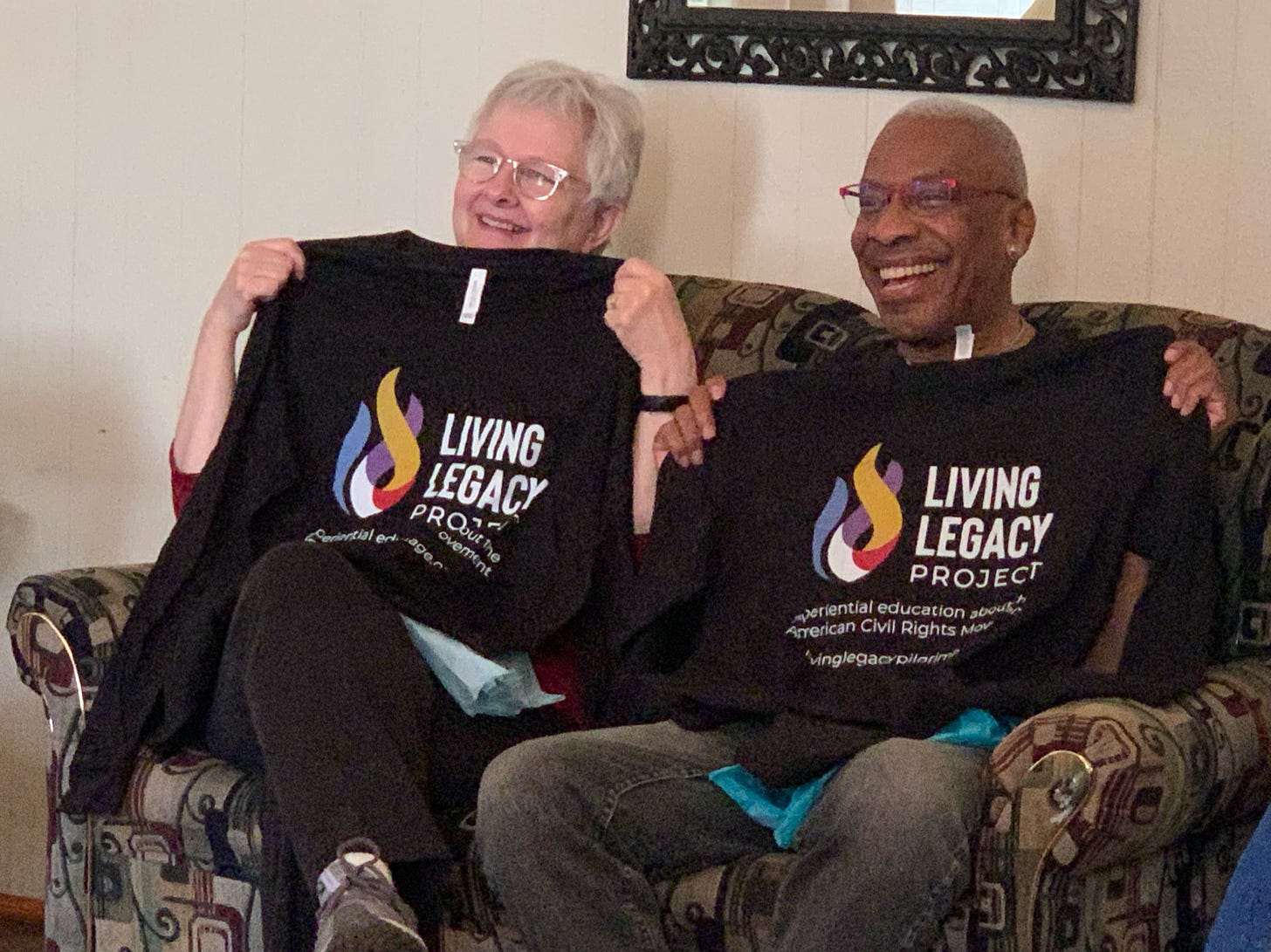It was 2015. Janice and I, in our roles as board members of the Living Legacy Project (LLP), the organization we and others co-founded to educate people about the American Civil Rights Movement, were planning a national conference to commemorate the 50th anniversary of the Selma to Montgomery March.
For 15 years, the LLP had been taking small groups of people to places central to the Movement and introducing them to foot soldiers who marched and organized in the 1950s and 60s. But this conference would be for hundreds. If we were going to pull it off, we needed professional assistance.
Janice and I knew that Jan, a colleague and professional conference planner, had the experience we lacked. If we could get her to say yes to helping us, we could breathe easier.
Janice and I prepared for the meeting. We figured she’d have a lot of questions, especially about what we were asking her to do and how much time it would take. We didn’t have those answers. We hoped we could say enough to convince her to help, but we knew a yes would take a leap of faith.
We met Jan in a common area outside her office. I don’t remember which of us made the request, but I do remember that before we had described much more than the general concept, Jan jumped in.
“Sure, I’ll help,” Jan said. Janice caught my eye. I could see she was as surprised as I was. We were certain we’d have to lay out a strong case to convince Jan to help us, so her readiness caught us off guard.
“That’s just great,” I said. I could tell that Janice was equally thrilled. “We’ll send you what we know at this point, and we can go from there.”
As we got up to leave, Jan stopped us, “You should know, though, that I have no idea what happened in Selma in 1965, or what we’ll be commemorating. In fact, to be honest with you, I’ve never even heard of Selma.”
I didn’t know what to say. I leaned against the back of the chair and almost had to sit back down. How could anyone as engaged as Jan not have heard about Selma?
“That’s OK,” Janice broke the awkward silence. “You’ll have plenty of opportunity to learn about it as we work together on the conference.”
If almost anyone else had said what Jan said, I would have discounted them and withdrawn our request. Yet there was something about Jan’s honesty and the incredible competence she had already demonstrated in previous conference planning work that endeared her to me. Maybe, I thought, more people hadn’t heard about Selma than I realized but weren’t honest enough to say so. Jan was and that fact convinced me we’d made the right choice in asking her.
It’s a decision I’ve never regretted.
Jan helped us put on a transformative conference for 500 people in Birmingham, Alabama, that has been dubbed by many as the best racial justice conference they ever attended. There’s no question it accomplished our primary goals: to remind participants of what people did in Selma in the 1960s to change the course of history and inspire them to apply those lessons to today’s work for racial justice.

Jan’s journey of discovery about the Civil Rights Movement and the impact of continued racism in this country may have begun with the 50th anniversary of the Selma to Montgomery March, but it didn’t end there. In witnessing Jan’s journey over these last few years, she’s taught me how competence doesn’t require perfect knowledge. In fact, a wise person admits what she doesn’t know, opens and commits herself to learning, and never pretends she knows more than she does.
That’s what I watch Jan do, and that’s why the Living Legacy Project Board elected her to be co-president, where she brings her acumen and experience to a dynamic civil rights organization.
Jan still doesn’t know everything, and neither do the rest of us, but together we can learn enough to make incredible things happen.
Next post:





I love Jan! Good to hear the backstory of why she’s on the board.